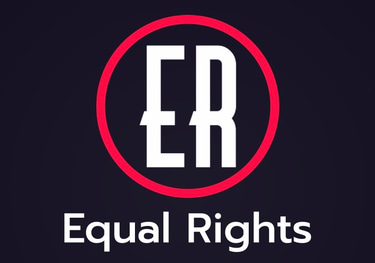Exploring LGBTQ+ Rights Legislation in Oregon
Kylo B
5/1/2024
Exploring LGBTQ+ Rights Legislation in Oregon
Oregon has been a trailblazer in advancing LGBTQ+ rights through progressive legislation aimed at ensuring equality and protection for individuals of diverse sexual orientations and gender identities.
In this article, we delve into the landmark LGBTQ+ rights legislation in Oregon, highlighting key initiatives, challenges, and the impact of these laws on fostering inclusivity and equality.
Historical Context
Oregon has a history of advocating for LGBTQ+ rights, including being one of the first states to decriminalize homosexuality in 1972.
Over the years, the state has continued to enact laws and policies aimed at promoting equality and ending discrimination based on sexual orientation and gender identity.
Key LGBTQ+ Rights Legislation in Oregon
Oregon Equality Act (2007): Prohibits discrimination based on sexual orientation and gender identity in employment, housing, public accommodations, and other areas.
Conversion Therapy Ban (2015): Prohibits licensed therapists from practicing conversion therapy on minors, recognizing it as harmful and ineffective.
Birth Certificate Changes (2017): Allows individuals to change the gender marker on their birth certificate without requiring proof of surgery.
Transgender Health Care Coverage (2020): Requires health insurance plans in Oregon to cover medically necessary transgender healthcare services.
Impact & Challenges
Despite legislative progress, challenges persist in achieving full equality for LGBTQ+ individuals:
Legal Battles: Ongoing legal challenges and resistance to LGBTQ+ rights from conservative groups pose obstacles to full implementation and protection.
Health Disparities: LGBTQ+ individuals, especially transgender individuals and people of color, continue to face disparities in healthcare access and outcomes.
Youth Protections: Ensuring safe and inclusive environments for LGBTQ+ youth in schools remains a priority, with efforts to combat bullying and discrimination.
Intersectionality: Addressing intersectional issues, such as the experiences of LGBTQ+ people of color and those with disabilities, requires intersectional approaches in policy and advocacy.
Community Advocacy & Support
Community organizations and advocates play a crucial role in advancing LGBTQ+ rights in Oregon:
Education & Awareness: Providing LGBTQ+ cultural competency training and education to promote understanding and acceptance.
Policy Advocacy: Mobilizing grassroots efforts to support and expand LGBTQ+ rights legislation and protections.
Legal Aid & Support Services: Offering legal aid, counseling, and support services for LGBTQ+ individuals facing discrimination or seeking resources.
Looking Ahead
Moving forward, Oregon continues to be a beacon of progress for LGBTQ+ rights, with opportunities to further advance equality and inclusivity:
Comprehensive Anti-Discrimination Laws: Strengthening existing laws to provide comprehensive protections against discrimination based on sexual orientation and gender identity.
Youth Support Programs: Expanding programs and resources to support LGBTQ+ youth, including mental health services and safe spaces.
Intersectional Approaches: Incorporating intersectionality into policymaking and advocacy efforts to address the unique needs of diverse LGBTQ+ communities.
Exploring LGBTQ+ rights legislation in Oregon showcases the state's commitment to equality, inclusion, and justice for all individuals regardless of sexual orientation or gender identity.
By building on legislative achievements, addressing persistent challenges, and prioritizing community advocacy and support, Oregon continues to pave the way towards a more equitable and affirming society for LGBTQ+ individuals.
Together, let us celebrate progress, confront challenges, and work towards a future where LGBTQ+ rights are fully realized and respected in Oregon and beyond.
